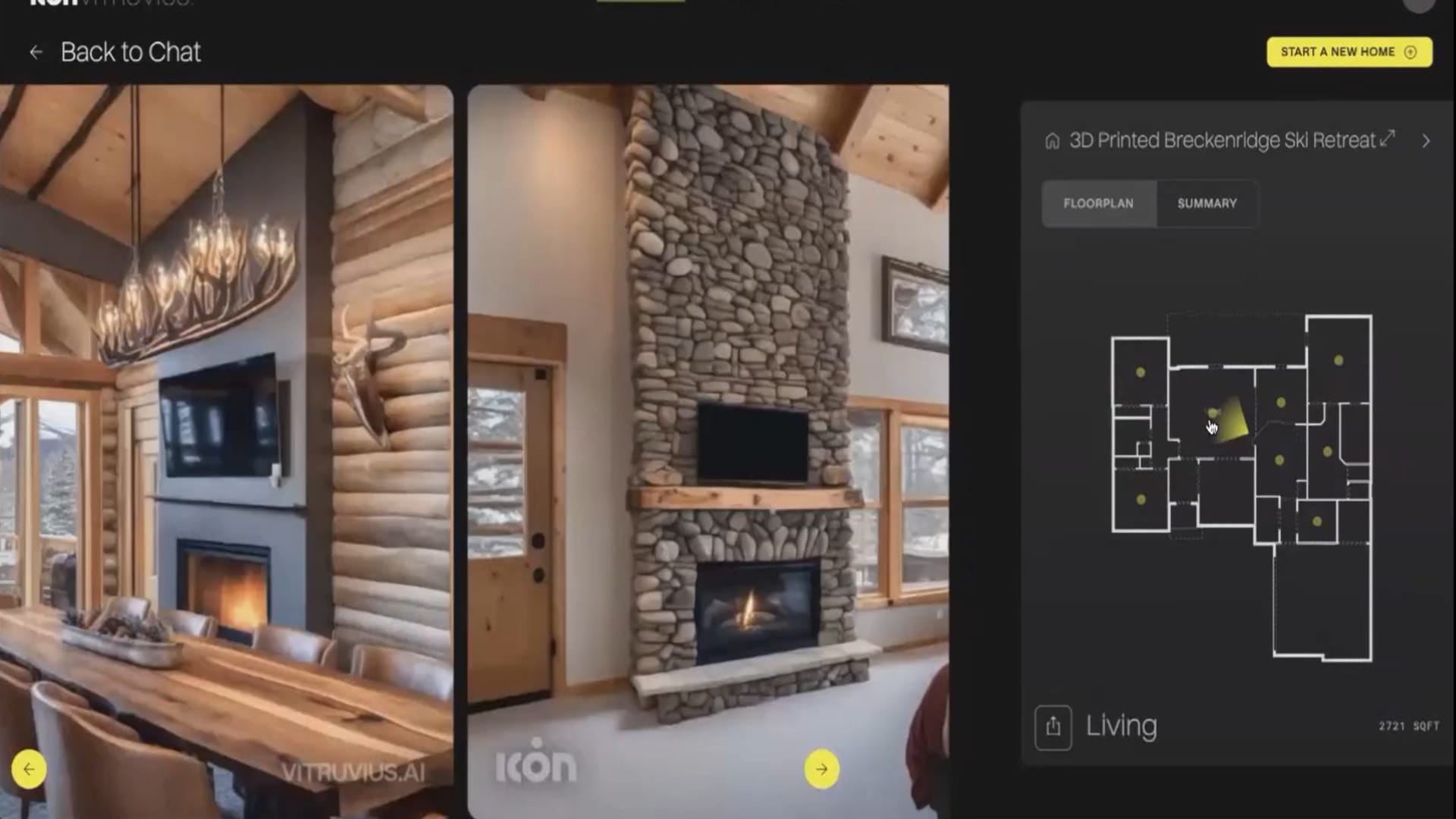Artificial intelligence is entering the housing space, specifically in architecture.
ICON, which developed one of the first fully 3D-printed housing developments in the US, is taking automation a step further. It recently introduced what it calls Vitruvius, an artificial intelligence program that helps consumers design custom homes online and get the plans, making the process cheaper and faster.
“Vitruvius' grand vision is to go from human desire to deliverables, such as construction documents, budgets, schedules and even robotic instructions,” said Jason Ballard, CEO of ICON.
According to Ballard, Vitruvius can remember all the designs and possibilities he has ever seen. He has been trained in building codes, construction methods and structural engineering, so he understands what is possible.
“It far exceeds human capacity,” Ballard added.
The user begins by writing a general idea of the type of house they would like to build. Vitruvius then asks questions, from where the house will be located, how big it will be, what type of architecture it will have, what amenities it should include and in what style. He then learns from the answers, incorporates knowledge from previous designs, and offers designs for three potential houses.
The program can also show what the house would look like if it were 3D printed or in the style of a famous architect, living or dead. Although other AI models have gotten into trouble for potential copyright violations, Ballard said he's not concerned in this case.
“It's not really about stealing anyone's real work. It's just being inspired by the way human artists are inspired,” he said. “I have no doubt that tools like this are going to change the way we do things.”
Vitruvius debuted at the South by Southwest festival in Austin, Texas, where it was tested by real estate agents and architects alike.
“Believe [AI is] It's going to be more of a tool. There are jobs that are going to change. Obviously architecture will never be the same again,” said Leonardo Guzmán, architect and builder, about the technology.
Real estate agent Gina McAndrews also tried it and said she was impressed by the technology, but hoped it would be used more alongside architects, rather than replacing them.
“It will definitely save a lot of money, but at the same time you still need people to interact with to change things, but yeah, definitely just to generate ideas because I'm limited in what I've seen, and this is mind-blowing,” McAndrews said.
Ballard said the implications of AI in architecture extend beyond consumers looking to save on architecture fees. He sees it as a turning point for affordable housing, which often takes shortcuts to reduce costs.
“What happens in affordable housing projects is that we dispense with architecture altogether. Even affordable housing projects deserve beauty and dignity, and we believe this tool makes that possible because, over time, the cost of using this tool should get closer to the cost of energy to power the system,” Ballard said.









